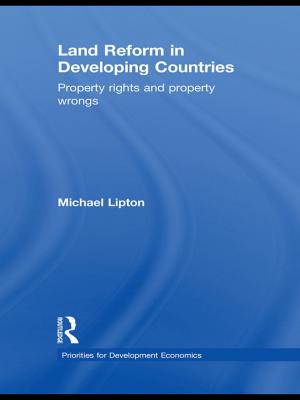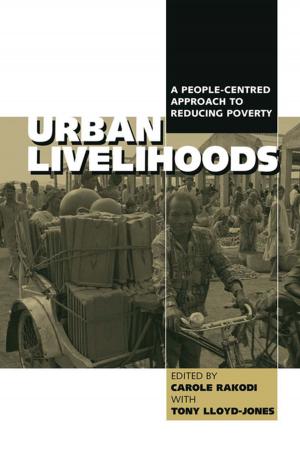Statistical Tragedy in Africa?
Evaluating the Database for African Economic Development
Business & Finance, Economics| Author: | ISBN: | 9781317369332 | |
| Publisher: | Taylor and Francis | Publication: | October 2, 2017 |
| Imprint: | Routledge | Language: | English |
| Author: | |
| ISBN: | 9781317369332 |
| Publisher: | Taylor and Francis |
| Publication: | October 2, 2017 |
| Imprint: | Routledge |
| Language: | English |
What do we know about economic development in Africa? The answer is that we know much less than we would like to think. This collection assesses the knowledge problem present in statistics on poverty, agriculture, labour, education, health, and economic growth. While diverse in origin, the contributors to this book are unified in two conclusions: the quality and quantity of data needs to be improved; and this is a concern not just for statisticians. Weaknesses in statistical methodology and practice can misinform policy makers, international agencies, donors, the private sector, and the citizens of African countries themselves. This is also a problem for academics from various disciplines, from history and economics to social epidemiology and education policy. Not only does academic work on Africa regularly use flawed data, but many problems encountered in surveys challenge common academic abstractions. By exploring these flaws, this book will provide a guide for scholars, policy makers, and all those using and commissioning surveys in Africa. This book was originally published as a special issue of The Journal of Development Studies.
What do we know about economic development in Africa? The answer is that we know much less than we would like to think. This collection assesses the knowledge problem present in statistics on poverty, agriculture, labour, education, health, and economic growth. While diverse in origin, the contributors to this book are unified in two conclusions: the quality and quantity of data needs to be improved; and this is a concern not just for statisticians. Weaknesses in statistical methodology and practice can misinform policy makers, international agencies, donors, the private sector, and the citizens of African countries themselves. This is also a problem for academics from various disciplines, from history and economics to social epidemiology and education policy. Not only does academic work on Africa regularly use flawed data, but many problems encountered in surveys challenge common academic abstractions. By exploring these flaws, this book will provide a guide for scholars, policy makers, and all those using and commissioning surveys in Africa. This book was originally published as a special issue of The Journal of Development Studies.















